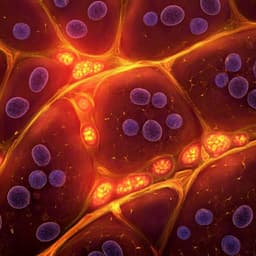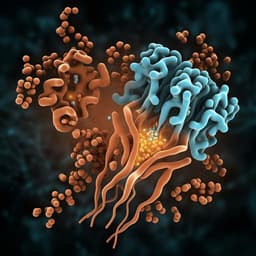
Health and Fitness
Alteration of serum amino acid profiles by dietary adenine supplementation inhibits fatty liver development in rats
H. Nishi, D. Yamanaka, et al.
Discover how dietary adenine supplementation can reverse fatty liver development in rats on a low-arginine diet. This groundbreaking research, conducted by Hiroki Nishi, Daisuke Yamanaka, Masato Masuda, Yuki Goda, Koichi Ito, Fumihiko Hakuno, and Shin-Ichiro Takahashi, reveals critical insights into amino acid interactions and liver health.
Playback language: English
Related Publications
Explore these studies to deepen your understanding of the subject.







